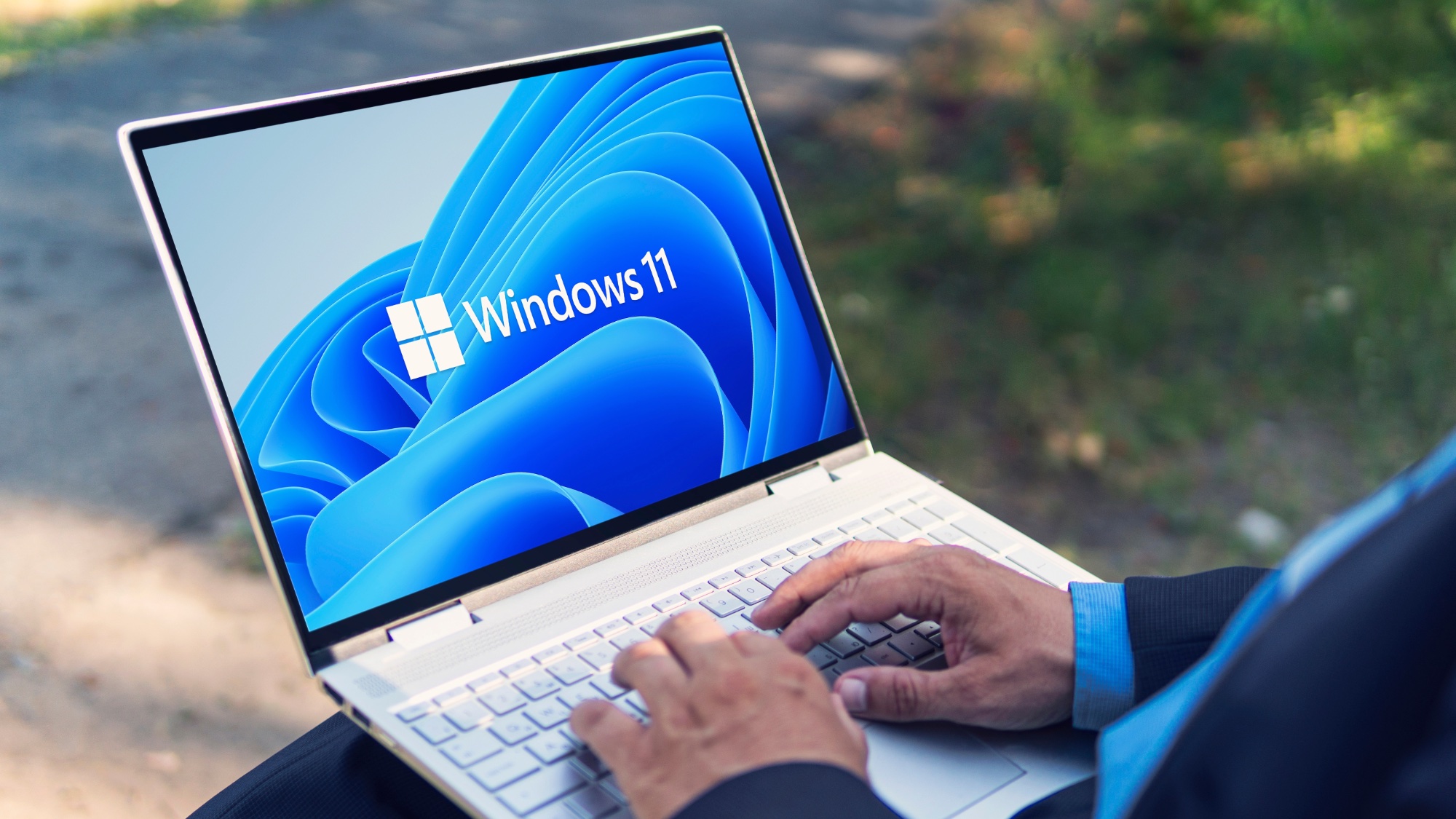How to stop your air fryer from overheating
Here are 7 ways you can prevent your air fryer from overheating in use

Air fryers were one of the most popular gifts over the holidays. They’re in high demand at the moment, not just because of the potential energy savings to be made — see air fryer vs oven for more info on this — but, because of the tender, crispy and delicious results they produce in a short space of time. The trouble is, even the best air fryers can malfunction if not used correctly. And one of the possible outcomes is overheating, which is a potential fire hazard.
In fact, Cinch Home Services conducted a study which found that air fryers were at the top of everyone’s wish list for the holidays, in terms of small appliances. However, it also found that searches for ‘air fryer accident’ have increased by 600% since October. So people are indeed misusing their new appliances, and it’s clear that more could do with knowing how to use an air fryer the right way. To help out, we’ve listed 7 tips which can help prevent an air fryer from overheating, so you can see what habits to avoid and what changes may need to be made.
1. Don’t overload the air fryer
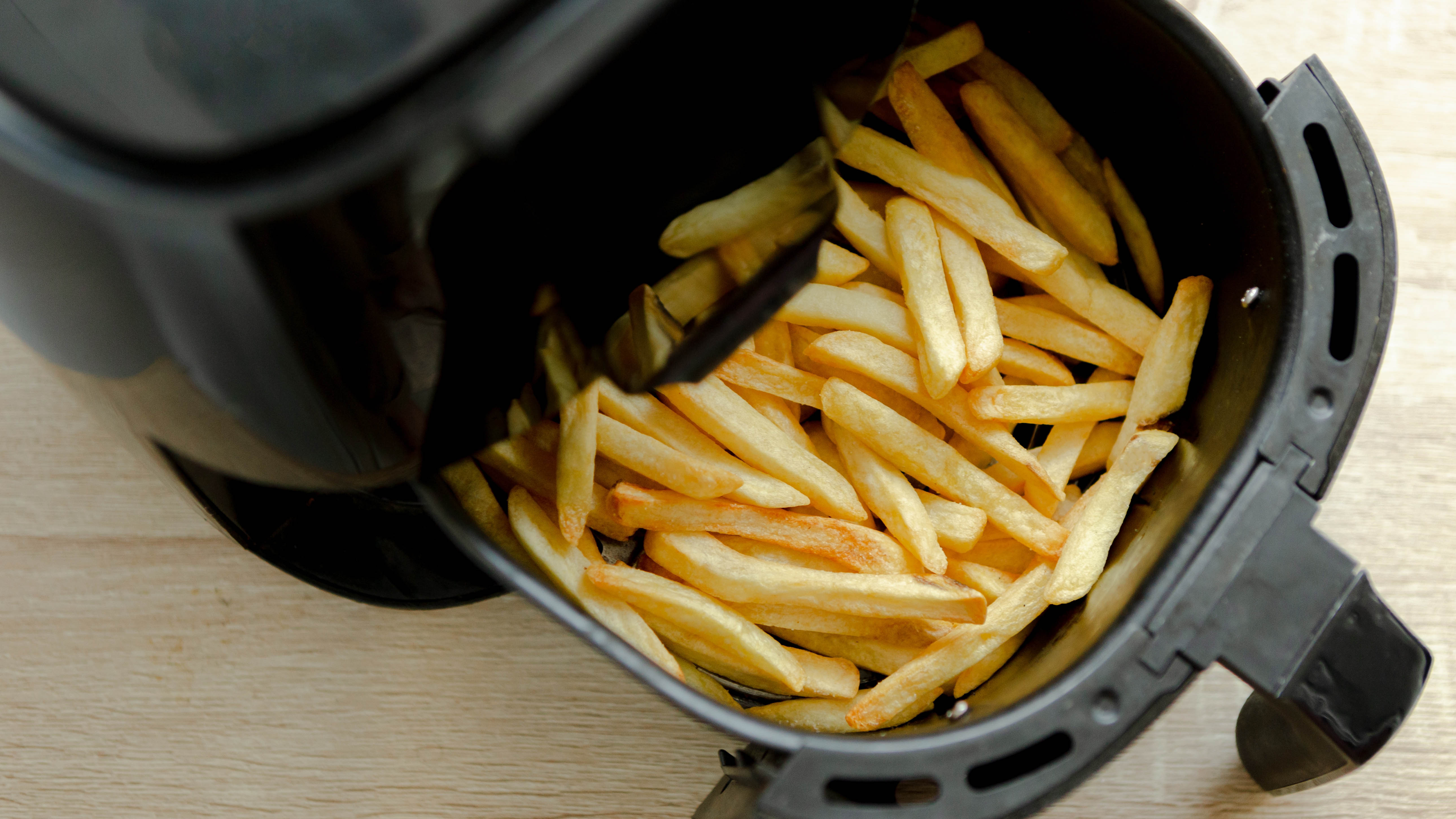
While the box your air fryer came in may show an air fryer basket filled to the brim with French fries, that’s not the reality. In fact, most foods can only be applied in a single layer across the base of the basket, with space between each item for the hot air to flow. This is necessary so that the food can cook evenly. Potatoes can be stacked to an extent when making French fries, but even these have limits, so you should refer to your manual for quantity guidance.
If you overload your air fryer, the ingredients will not cook evenly for starters. It can also cause your air fryer to work harder than it should, vent less effectively, and ultimately overheat. That’s why you should always check the quantities of what you’re cooking and cook in batches instead if required. If you find you need a larger capacity on a regular basis, it might be worth upgrading to one of the best toaster ovens.
2. Don’t use too much oil
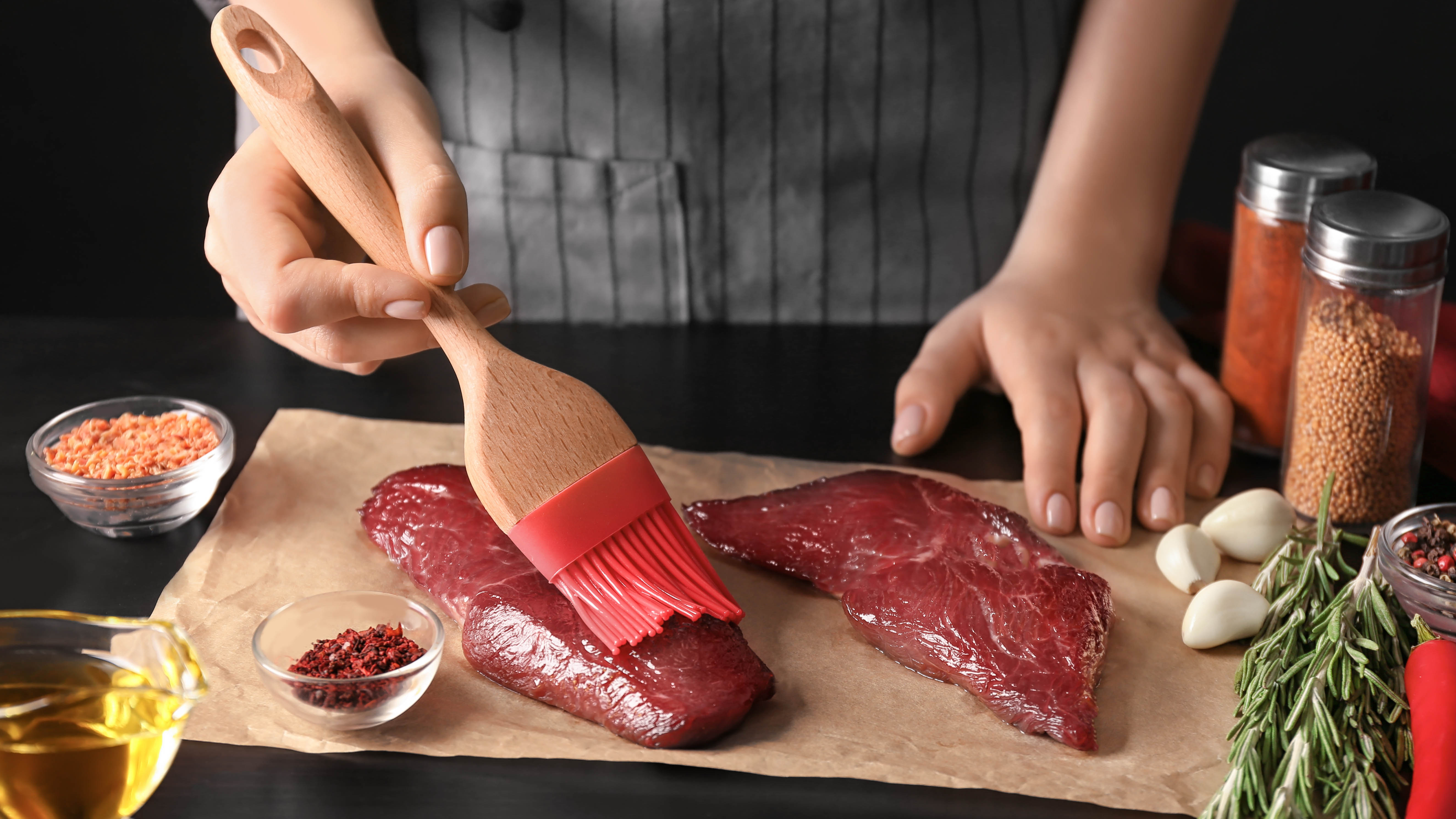
Make sure you’re using the correct amount of oil in your air fryer, which may be less than you think. One to two teaspoons applied directly to the food will usually be enough for most recipes — you can apply by brushing or spritzing it on. Applying a thin layer to the food can improve crisping and help seasoning to stick.
Be careful not to add more than this though. If too much oil is applied within the basket, you risk it dripping or leaking over the sides into the internal components when you shake the basket, which can lead to overheating. An excess of oil can also end up burning your ingredients and ultimately overheating your air fryer in general.
3. Don’t put anything in there you shouldn’t
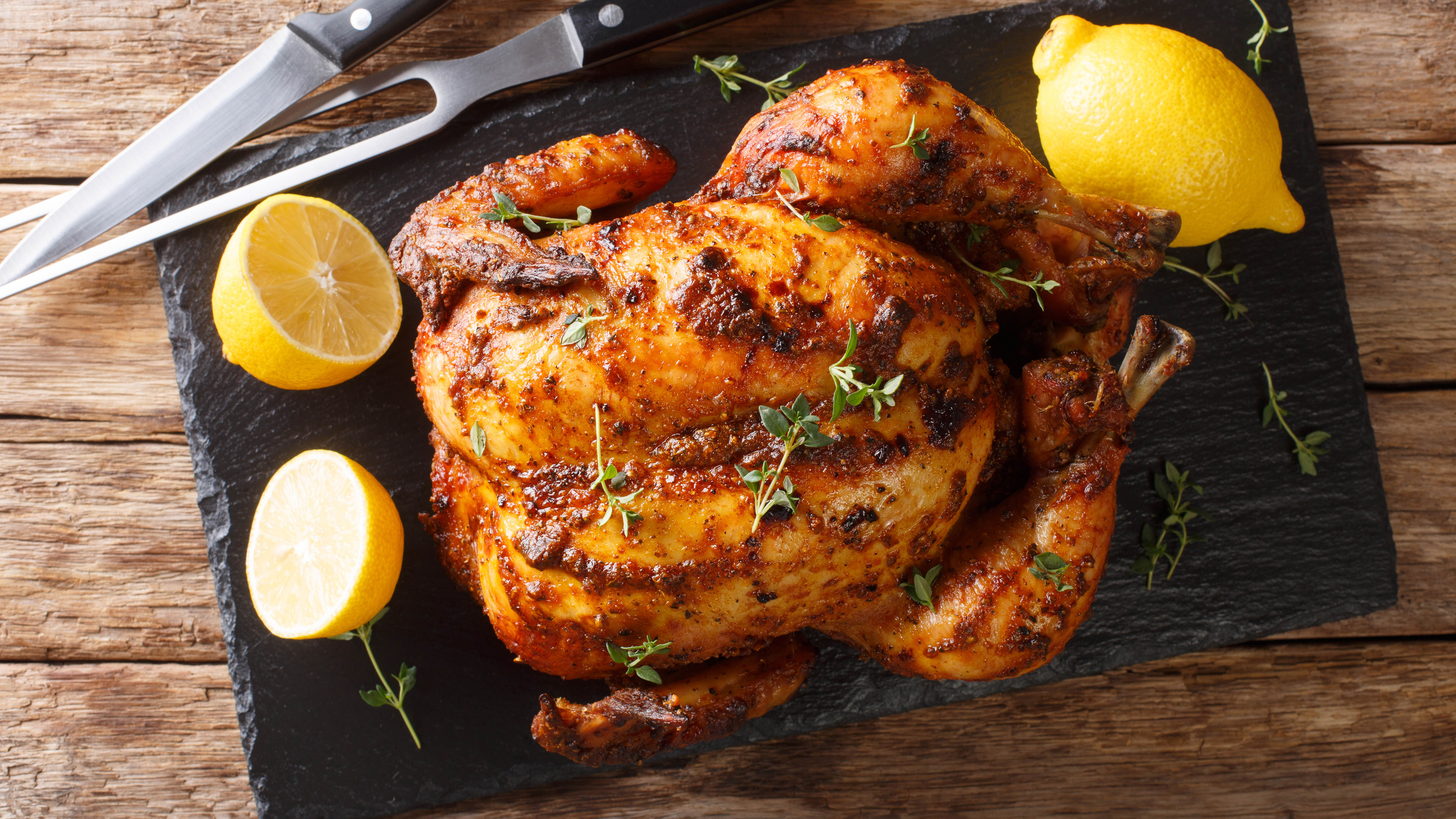
Air fryers can be used to cook all kinds of recipes, but there are still some ingredients that shouldn’t go in the basket. Anything which can melt or drip are definite no-gos, such as cheese or wet batter. These can be very difficult to clean up afterwards if they burn to the base.
Sign up to get the BEST of Tom's Guide direct to your inbox.
Get instant access to breaking news, the hottest reviews, great deals and helpful tips.
Avoid trying to fit a whole roast chicken into your air fryer if your model doesn’t allow it, too. Some brands can accommodate this, while others can’t, so be sure to check beforehand. Otherwise, you could end up overcrowding and consequently overheating your air fryer. See our list of 9 things you should never put in an air fryer for more guidance.
4. Use the correct settings
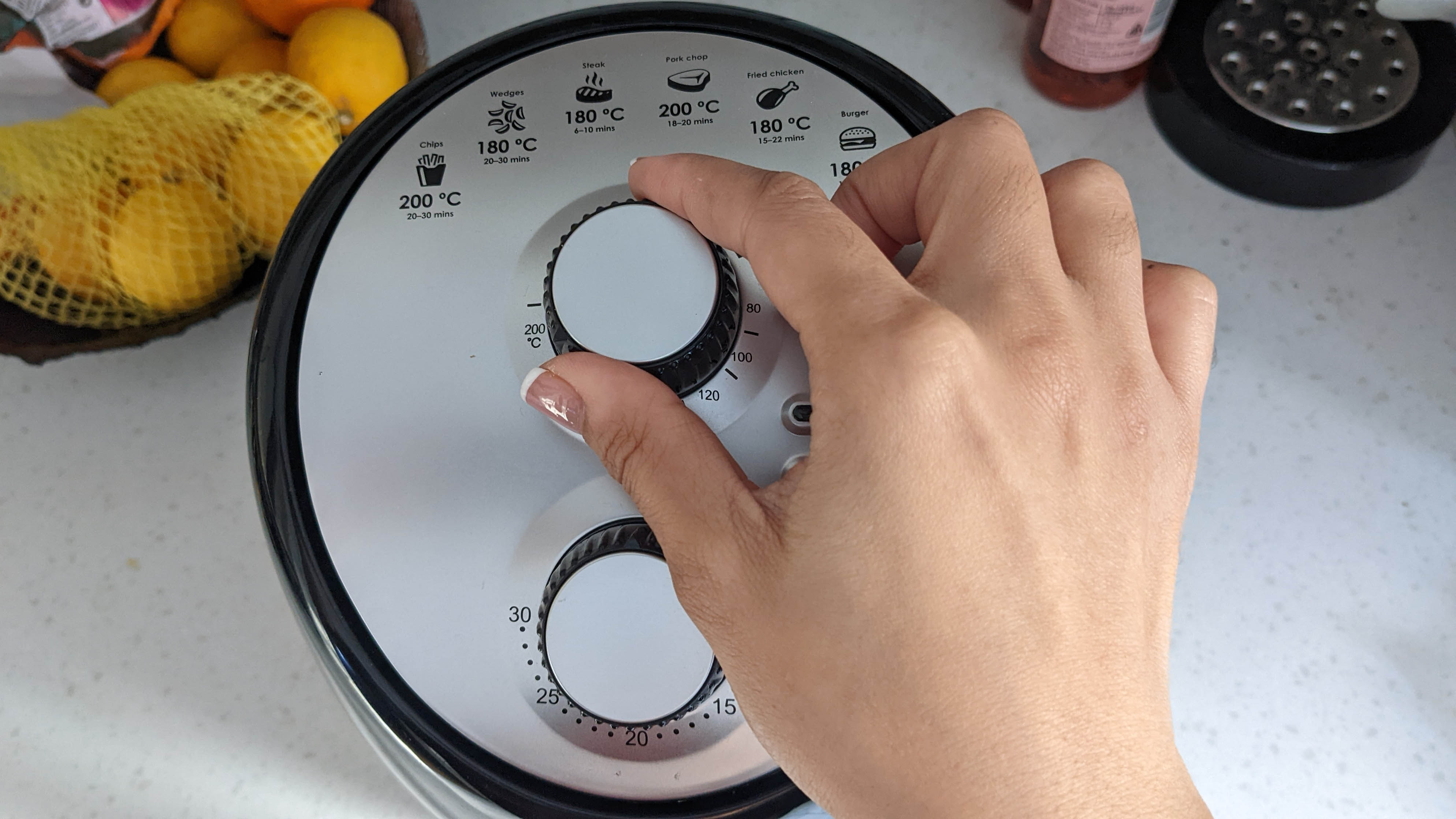
Never second-guess the settings on your air fryer. Your manual should come with cooking charts, and you should always refer to these when required. Most air fryers can function up to 400°F, which means if you use a higher setting than required, your food can easily burn. This can produce some serious smoke and set off your fire alarms.
Always follow your manufacturer's instructions for cooking guidelines and routinely check on the progress of your food as it cooks. If your air fryer comes with dedicated ingredient settings, make sure you use the appropriate function.
5. Give the air fryer room to vent
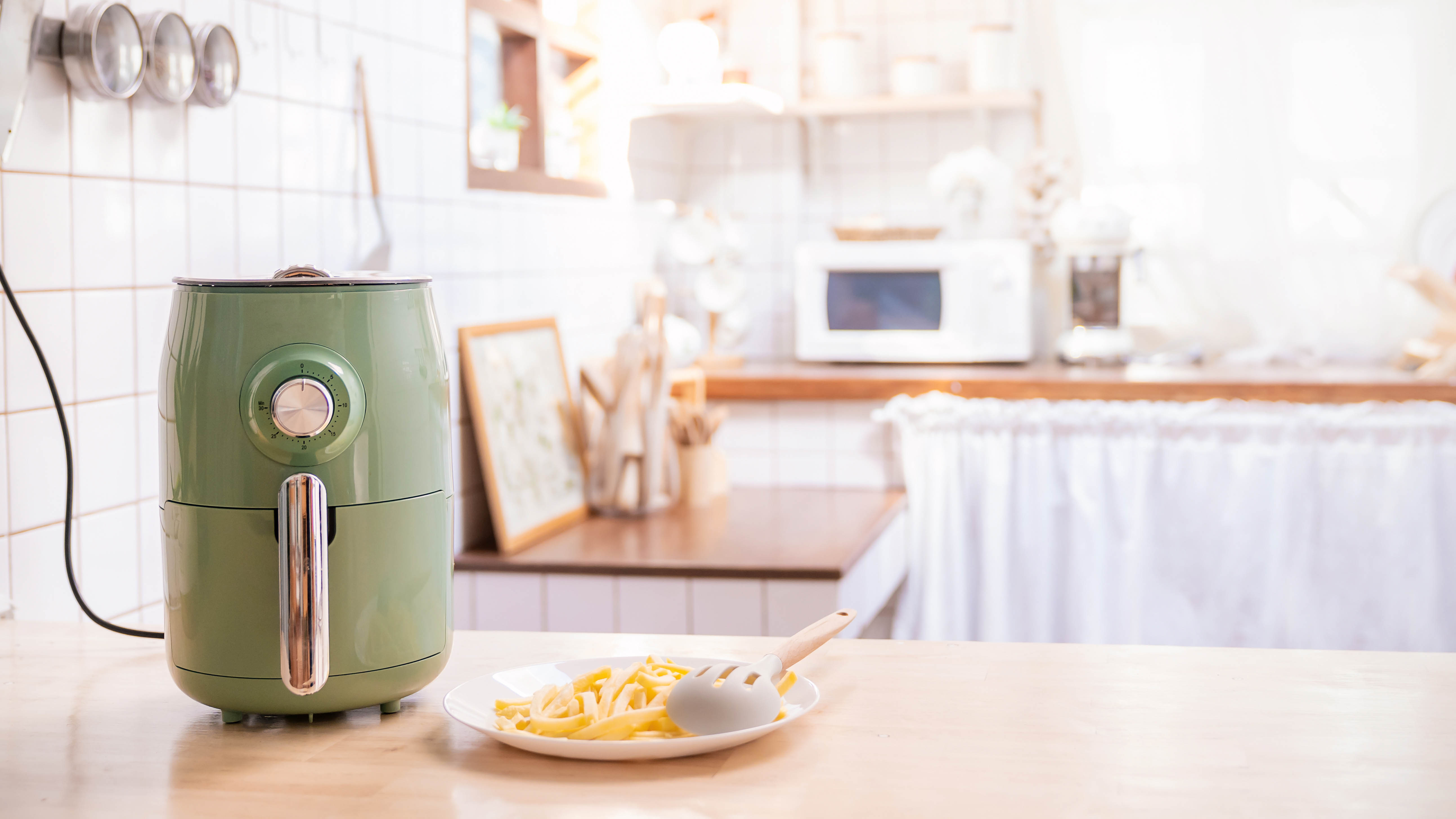
All air fryers need room to vent and breathe — this helps the appliance control its internal temperature. Make sure your countertop has adequate space surrounding the air fryer while it’s in use. Check that the cable isn’t pressed up against the air fryer either — the exterior surface temperature can cause damage to the wiring if left unchecked.
Refer to your manual for guidance on how much space is required. If your kitchen is particularly hot, open windows and doors to increase ventilation — this gives your air fryer a helping hand.
6. Deep clean when required
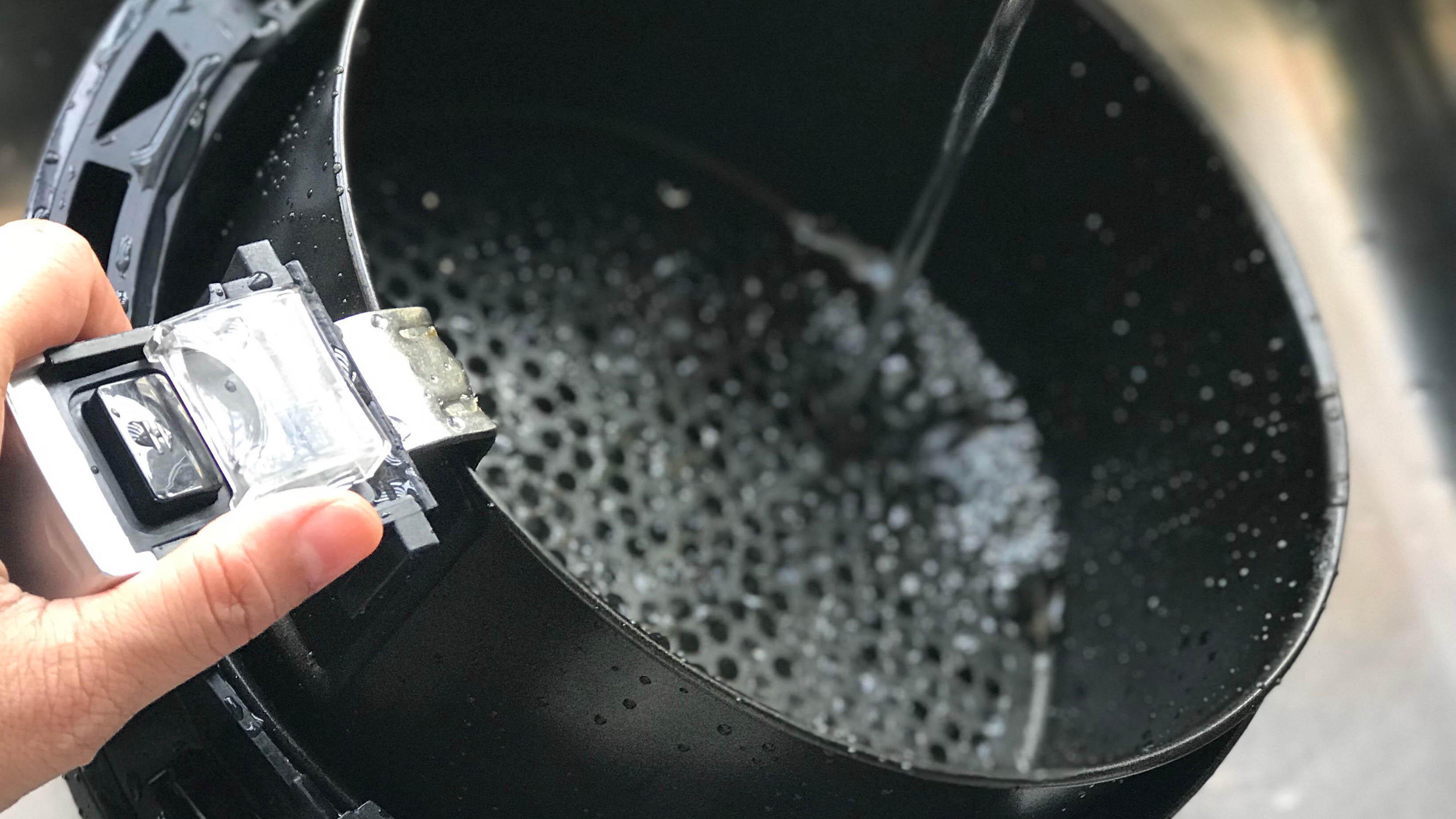
While air fryers are quick and simple to clean, with most parts being dishwasher-safe, these appliances still require deep cleaning once in a while. This involves carefully cleaning the actual body of the air fryer to remove any built up grease and oils. This is important because, if left unchecked, this grease can burn and smoke over time, ruining the performance of your air fryer. In extreme situations, an excessively dirty air fryer can also overheat, so this needs to be addressed.
Deep cleaning an air fryer is only required once a month with regular use. All you need is a couple of household products, including a sponge, microfiber cloths, dish soap and a soft-bristled brush. For full guidance, see how to clean an air fryer. Of course, don’t forget to thoroughly wash your air fryer after each use, according to the manufacturer’s instructions.
7. Don’t leave it unattended
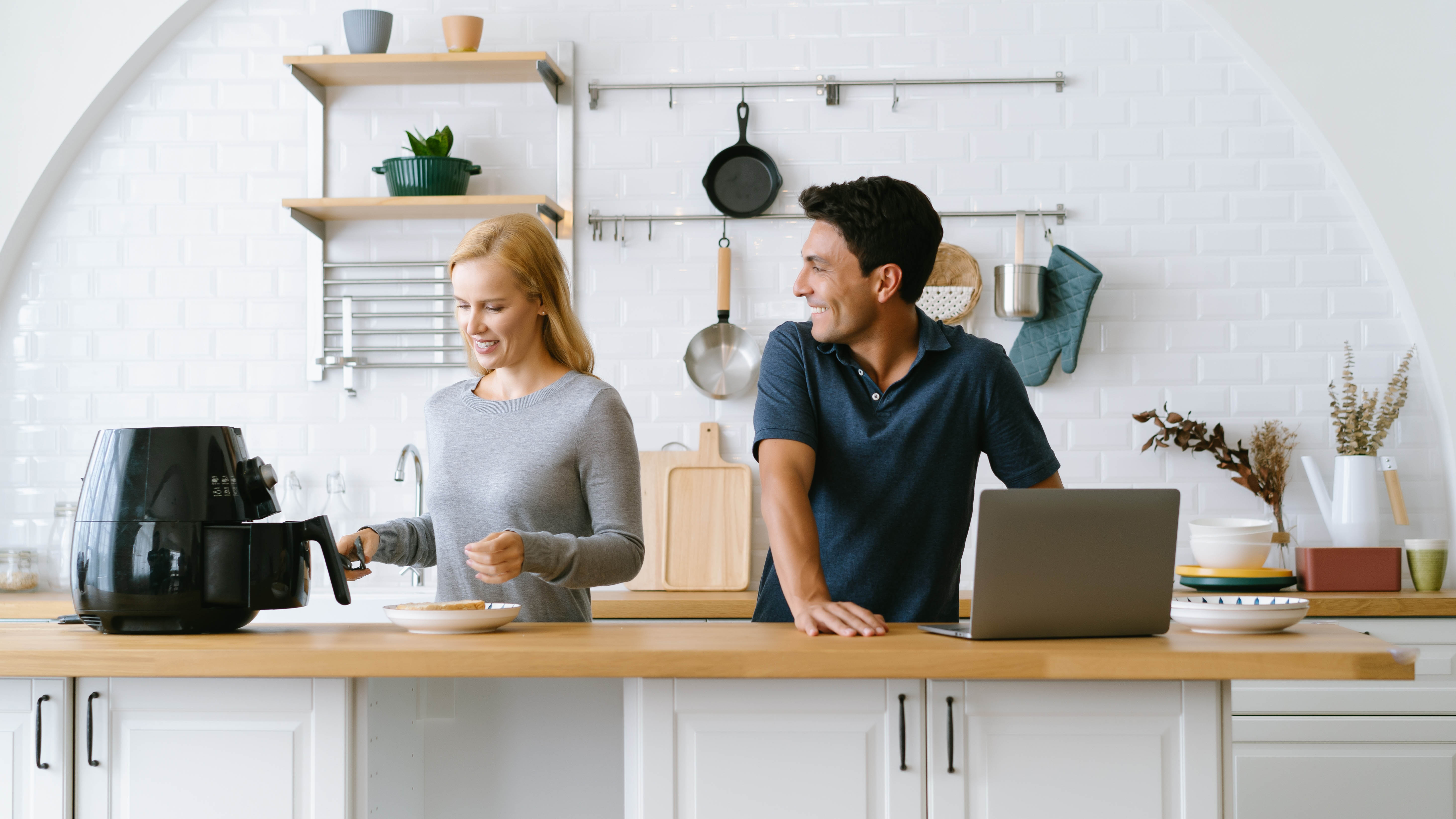
While air fryers are built with convenience in mind, they should never be left unattended when in use. These appliances cook at very high temperatures and should you notice signs that it’s overheating, such as smoke, it’s essential that you address the matter as soon as possible by unplugging it and leaving it to cool down.
You also don’t want to risk young children or curious pets running around and potentially burning themselves on an active air fryer, so keep an eye on it and unplug it when not in use.
For more cooking content, check out I’ve owned an air fryer for one month — here’s what I’ve learned, how to clean cast iron stove grates and the best outdoor pizza ovens.
Next: Are air fryers actually healthy? Here's what the experts say.

Katie Mortram used to be a Homes Editor for Tom's Guide, where she oversaw everything from kitchen appliances to gardening tools, as well as smart home tech. Specializing in providing expert advice for cleaning and home manintenance, she now works as Household Advice Editor for Good Housekeeping.
